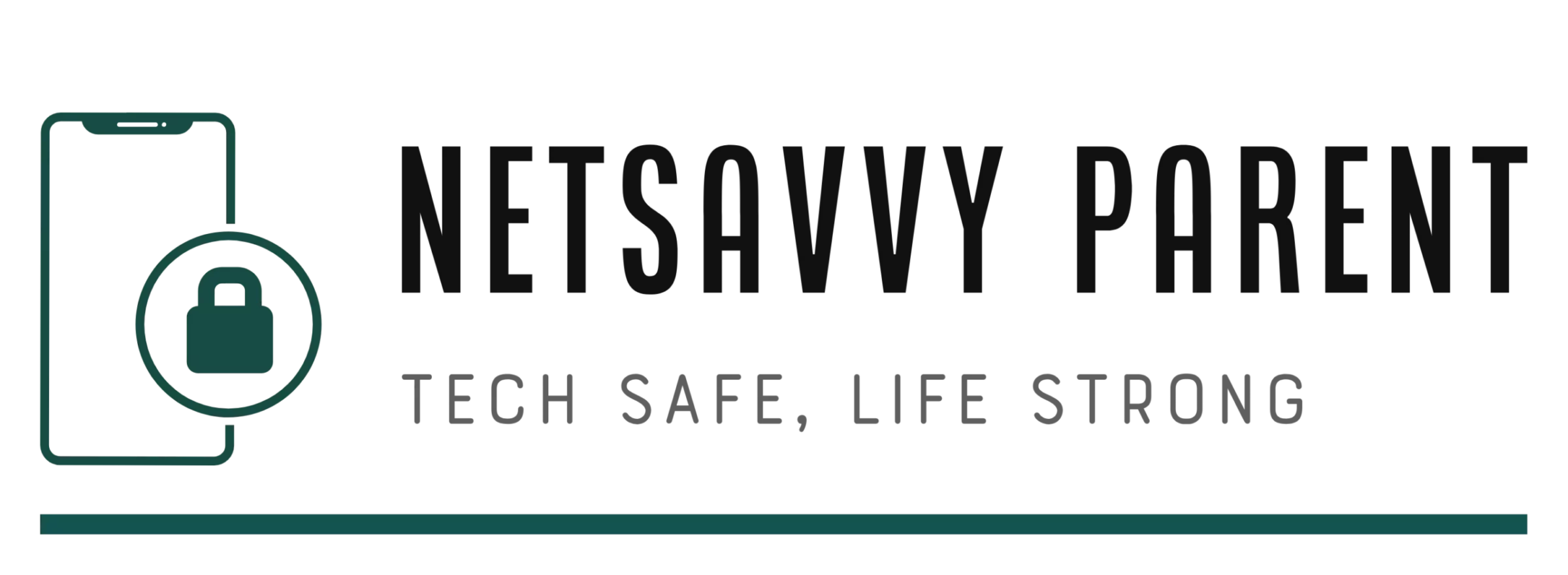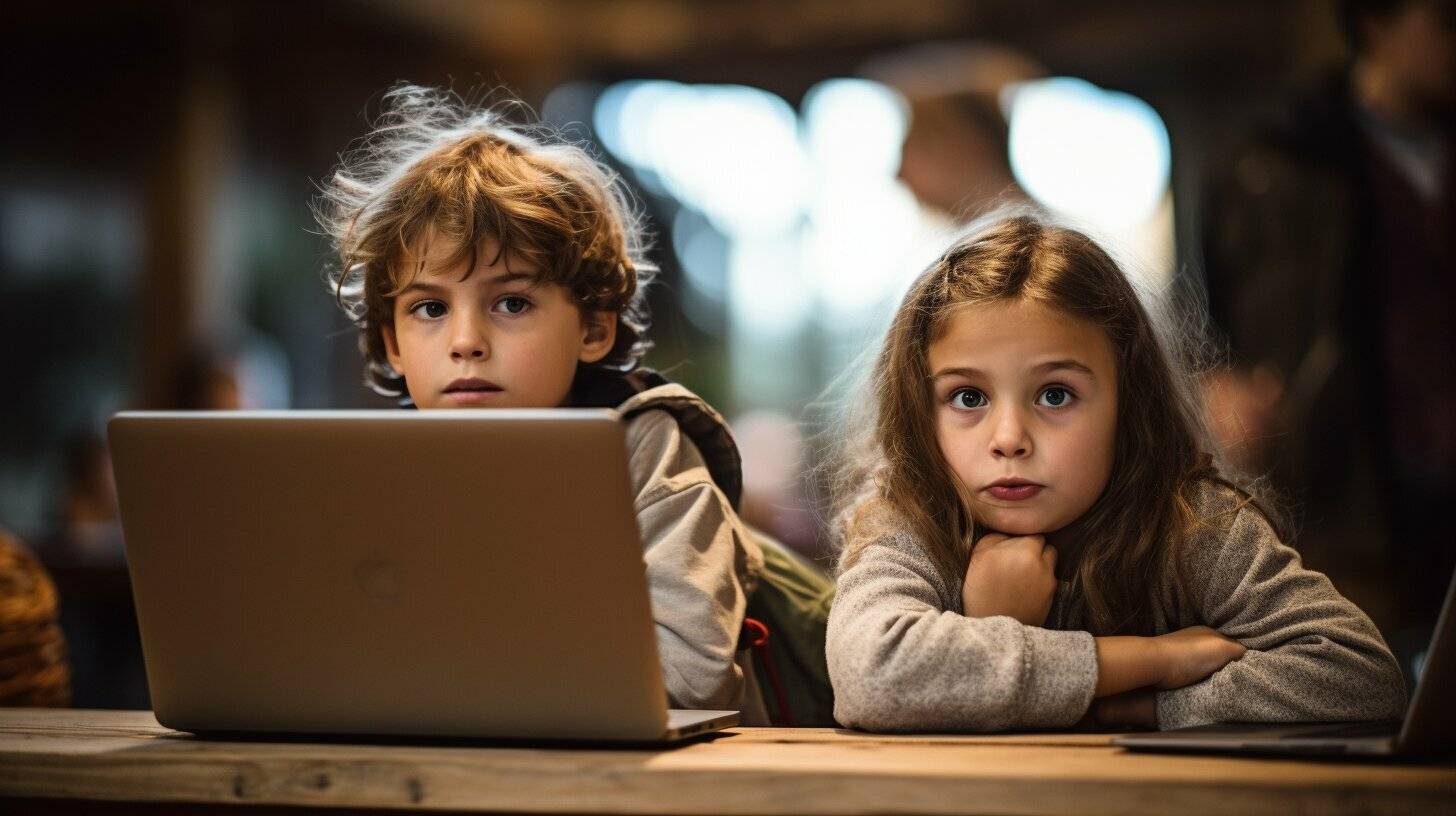However, the decision of whether or not to allow your child to use social media is a complex one. On one hand, social media can help kids remain connected with friends and family, access educational resources, and develop important communication skills. On the other hand, social media use can expose kids to cyberbullying, inappropriate content, and other online risks.
In this article, we will take a look at the pros and cons of kids and social media use. We will also provide tips and guidelines for parents on how to effectively monitor and limit their child’s social media activity, while still encouraging safe and responsible online behavior. So, should kids have social media? Let’s dive in and discover the answer.
How Old Should Kids Be to Have Social Media?
Social media has become an integral part of modern society, and children are no exception. With so many social media platforms available, it can be a challenge for parents to determine what age is appropriate for their child to start using them. While there is no one-size-fits-all answer to this question, there are some guidelines parents can follow to make an informed decision.Popular Social Media Platforms and Age Restrictions
Many social media platforms have age restrictions in place to ensure the safety and privacy of their users. The most popular social media platforms and their age restrictions are as follows:- Facebook: 13 years old
- Instagram: 13 years old
- TikTok: 13 years old
- Twitter: 13 years old
- Snapchat: 13 years old
- YouTube: 13 years old
Guidelines for Parents
When deciding if and when their child should start using social media, parents should consider several factors, including their child’s maturity level, online behavior, and ability to follow rules and guidelines. Here are some guidelines parents can follow:- Wait until your child is at least 13 years old, the age restriction for most social media platforms.
- Consider using child-friendly versions of social media platforms for younger children.
- Talk to your child about online safety and responsible social media use.
- Set rules and guidelines for social media use, such as screen time limits and privacy settings.
- Regularly monitor your child’s social media activity and have open and honest communication about any concerns or issues that arise.
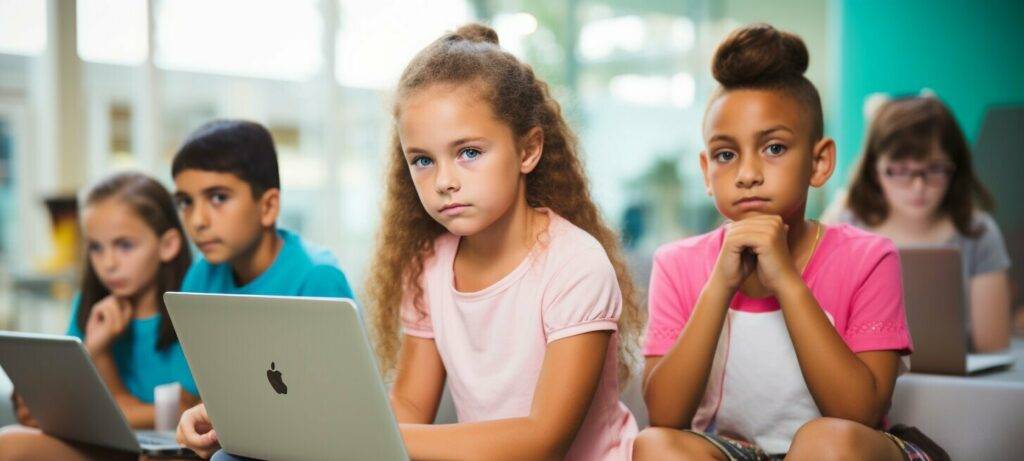
Understanding the Benefits of Social Media for Kids
Social media sites like Instagram, Twitter and Facebook have become ubiquitous in modern society, and it’s no surprise that many kids want to be part of the action. While there are certainly risks associated with social media use for children, there are also some potential benefits that parents should consider.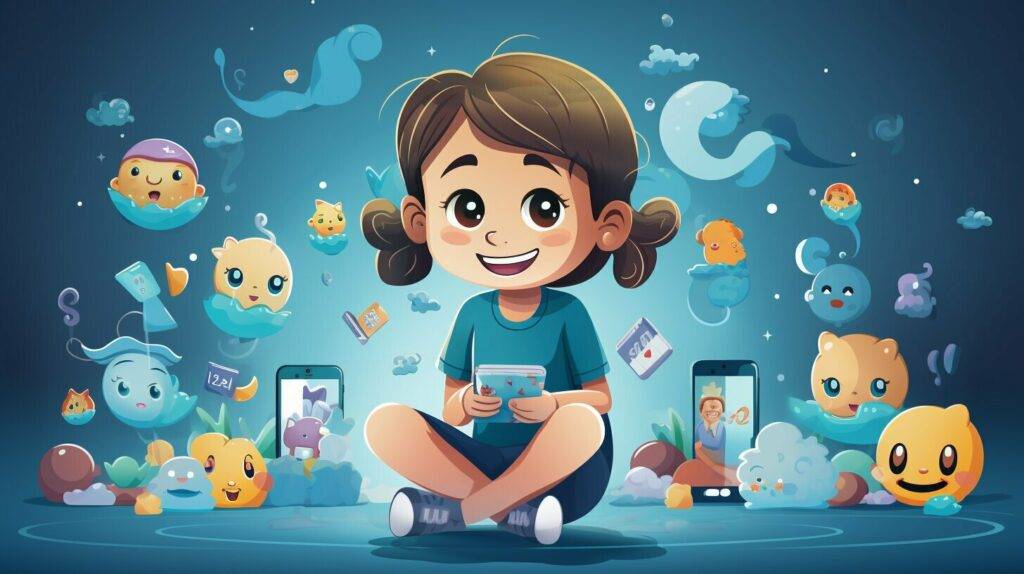
The Potential Benefits of Social Media for Kids
Increased Socialization: By using social media, kids can connect with friends and family members, as well as meet new people who share their interests or hobbies. This can be especially important for kids who have trouble making friends or live in remote or isolated areas.Expanded Learning Opportunities: Social media can provide kids access to many educational resources, from online classes and tutorials to discussion forums and study groups. This can be especially helpful for kids who struggle academically or who need extra support in certain subjects.
Improved Communication Skills: Social media provides kids with a platform for expressing themselves and sharing their ideas with others. This can help them develop more robust communication and writing skills, as well as improve their ability to articulate their thoughts and feelings.
Encouraging Positive Social Media Use
While social media can offer a range of benefits for kids, it’s important for parents to encourage positive and responsible use of these platforms. Some tips for encouraging responsible social media use include:- Setting limits on screen time and ensuring kids have plenty of time for offline activities and friendships
- Modeling positive online behavior, such as using social media to support friends and participate in positive online conversations
- Teaching kids about online privacy and safety, including how to create strong passwords, avoid sharing personal information, and recognize potential online threats
The Dark Side of Social Media for Kids
Social media can have a darker side for kids, and it’s important for parents to be aware of the potential risks involved. One of the main concerns is its negative impact on self-esteem and mental health. Social media can create unhealthy comparisons and unrealistic expectations, leading to feelings of inadequacy and anxiety. Another significant risk is exposure to harmful or inappropriate content. While many social media platforms have guidelines for user-generated content, it’s not always possible to prevent access to negative or dangerous material.“Children may also be more likely to engage in risky behaviors, including sharing personal information, engaging with strangers, and participating in online challenges or dares.”
In addition, cyberbullying and harassment are very real concerns when it comes to kids and social media. Online anonymity can embolden bullies, making social media a particularly dangerous platform for young people.
It’s essential for parents to understand these risks and to proactively minimize them, such as by monitoring their child’s social media use and setting boundaries on screen time. By having regular conversations with their children about responsible online behavior and digital citizenship, parents can help their kids navigate social media safely and with confidence.
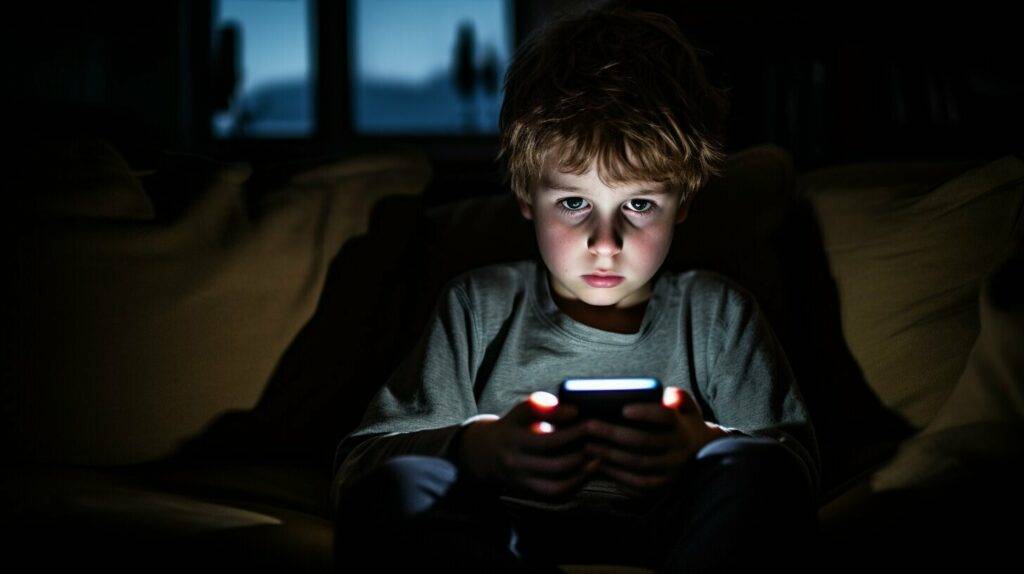
Setting Boundaries for Social Media Use
As parents, it’s important to set boundaries for your children’s social media use. While social media benefit kids in many ways, it can also expose them to potential dangers and risks.One way to set boundaries is to establish rules around when and how often your child can use social media. For example, you might limit social media use to certain hours of the day, or require your child to complete homework or chores before they can access their accounts.
Another important boundary to set is around online privacy. Make sure your child understands the importance of keeping personal information private, and encourage them to adjust their privacy settings on social media platforms to minimize the risk of exposure to online predators.
“One way to set boundaries is to establish rules around when and how often your child can use social media.”
It’s also a good idea to discuss the risks of cyberbullying with your child, and establish guidelines for how to handle situations if they arise. Encourage your child to speak up if they experience any form of online harassment, and be prepared to step in to protect them if necessary.
Remember, setting boundaries around social media use doesn’t have to be overly restrictive or negative. By establishing clear guidelines and encouraging positive online behavior, you can help your child navigate the online world safely and responsibly.
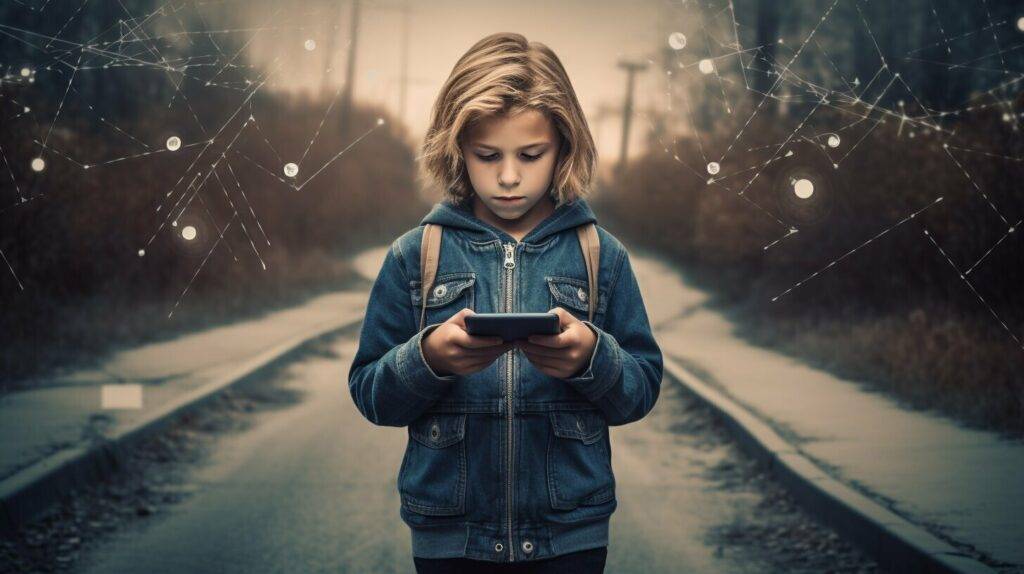
Don’t forget to regularly check in with your child about their social media use, and be open to discussing any concerns or challenges they may be facing. With your guidance and support, your child can develop healthy and positive social media habits that will serve them well throughout their lives.
Section 6: Monitoring Your Child’s Social Media Activity
As a parent, monitoring your child’s social media activity is essential to ensuring safe and responsible online behavior. Here are some tips to help you effectively monitor your child’s social media use:- Use parental controls and privacy settings: Most social media platforms offer parental controls and privacy settings that allow you to monitor your child’s activity and limit their access to certain features. Take advantage of these settings to help keep your child safe while using social media.
- Monitor online conversations: Keep an eye on your child’s online conversations, especially if they are communicating with people they do not know in person. Look out for any signs of cyberbullying, harassment, or inappropriate content.
- Regularly check in: It’s important to regularly check in on your child’s social media use to ensure that they are using it responsibly. Set aside time to discuss their online activity and address any concerns or issues that arise.
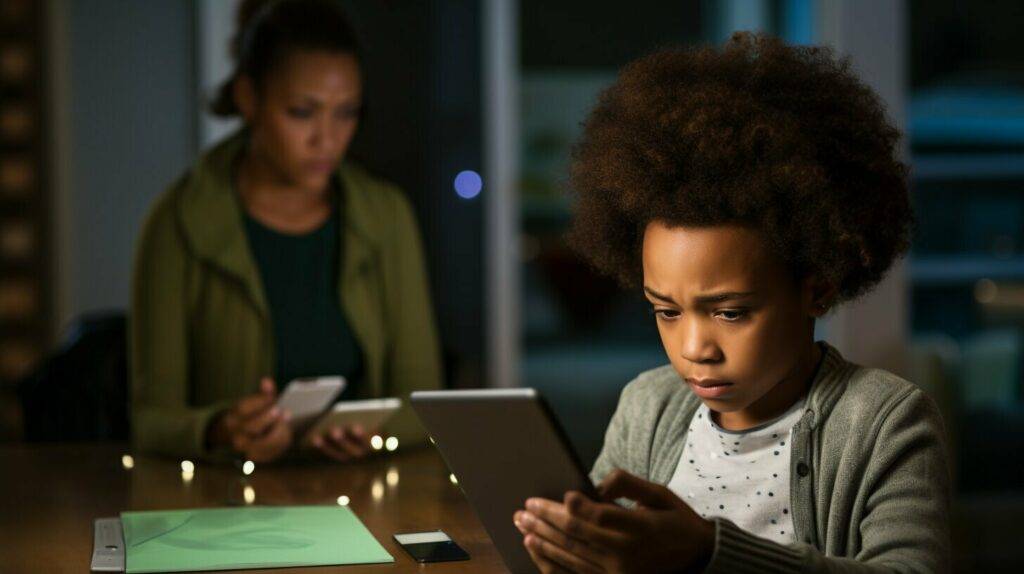
Teaching Digital Literacy and Safety Skills to Kids
As children become more and more involved with technology and social media, it’s crucial to teach them how to navigate the online world safely and responsibly. Here are some tips for teaching digital literacy and safety skills to kids:1. Start early
It’s never too early to start teaching your child about digital literacy and safety. Even young children can begin to learn about online privacy, appropriate online behavior, and the importance of thinking before sharing or posting anything online.2. Be a good role model
Children learn by example, so it’s important to model responsible online behavior yourself. This includes avoiding oversharing online, being respectful of others online, and using privacy settings effectively.3. Talk openly and honestly
Have open and honest conversations with your child about the online world. Discuss the potential risks and benefits of social media, and encourage your child to come to you with any questions or concerns.4. Educate on online privacy and security
Teach your child how to protect their online privacy and security. This includes using strong passwords, avoiding sharing personal information online, and recognizing phishing scams and other online threats.5. Discuss cyberbullying and online harassment
Unfortunately, cyberbullying and online harassment are all too common on social media. Teach your child how to recognize and report bullying behavior, and encourage them to speak out if they or someone they know is being bullied online.6. Stay involved and monitor their activity
Stay involved in your child’s online activity and monitor their social media use regularly. Use parental controls and privacy settings to help keep them safe, and talk to them about any concerns you may have.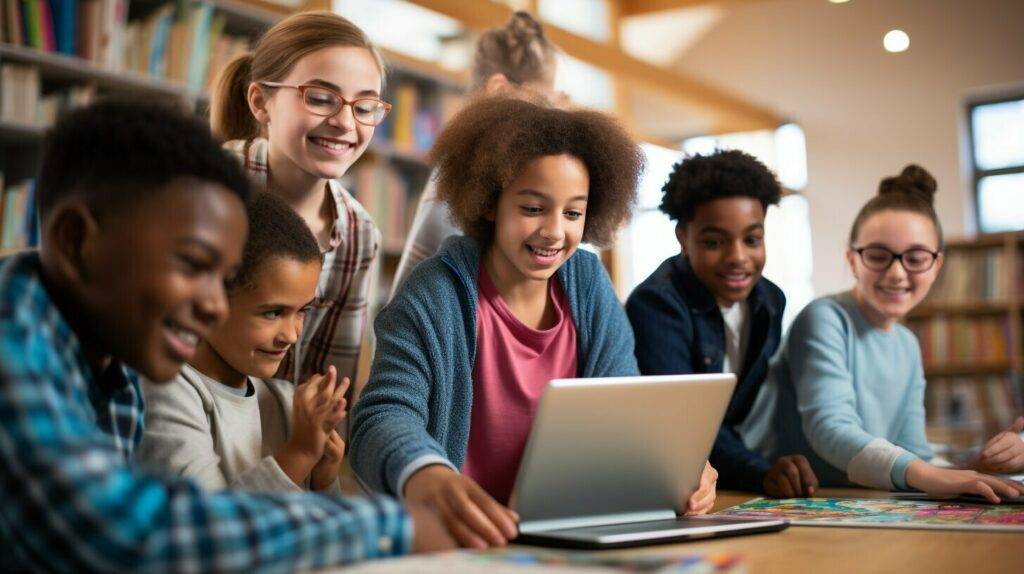
Encouraging Healthy Social Media Habits for Kids
As a parent, it’s important to help your child develop healthy social media habits. Social media can have many benefits for kids, but it’s crucial to make sure they’re using it safely and responsibly. Here are some tips for encouraging positive social media use:- Set time limits: Encourage your child to take breaks from social media and set limits on the amount of time they spend online. This can help prevent addiction and ensure that they still engage in offline activities.
- Encourage offline activities: Encourage your child to engage in offline activities, such as sports or hobbies, to balance their online activity. This can help prevent dependence on social media and promote a healthy lifestyle.
- Model responsible behavior: Children often model their behavior after their parents, so make sure you’re modeling responsible online behavior. This includes using social media positively and respectfully.
- Teach critical thinking skills: Help your child develop critical thinking skills by teaching them to consider the source of information they see online and to question what they read or see on social media.

“Parents can help encourage positive social media use by setting boundaries and modeling responsible behavior.”
By encouraging healthy social media habits, you can help your child develop a positive relationship with social media and use it to its full potential while avoiding potential risks and negative consequences.
Frequently Asked Questions About Kids and Social Media
As a parent, you may have many questions and concerns about your child’s social media use. Here are some frequently asked questions and their answers:Most social media platforms have a minimum age requirement of 13, but it’s ultimately up to parents to decide when their child is ready for social media. Consider your child’s maturity level, ability to follow rules and guidelines, and understanding of online safety and privacy.
Some popular social media platforms for kids include TikTok, Snapchat, and Instagram. It’s important to carefully review the terms of service and privacy policies of any platform your child wants to use to ensure it aligns with your values and safety concerns.
Teach your child how to recognize and respond to cyberbullying, and encourage them to report any incidents to you or a trusted adult. You can also use parental controls and privacy settings to limit your child’s online exposure and help prevent bullying.
Document any harassment or threatening messages, and report them to the platform’s administrators or law enforcement if necessary. Offer emotional support to your child and help them protect themselves online.
If you notice your child exhibiting signs of addiction, depression, or other negative behaviors related to their social media use, it may be time to limit or stop their access. Additionally, if your child is not adhering to your established rules and guidelines for social media use, it may be necessary to restrict their access.
Set clear rules and guidelines for social media use, and model responsible online behavior yourself. Encourage your child to balance their online and offline activities, and teach them about online safety and privacy. Regularly discuss their social media use and any concerns or issues that arise.
